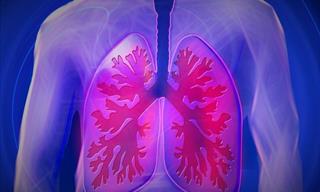Hypertrophic Scars and Keloid Scars: Are They Similar?
Similar to hypertrophic scars, keloid scars can be caused by injury, surgery, injections, body piercing and also acne. They are both similar in size and shape, though keloid scars will grow beyond the boundary of the wound. Both scars have high amounts of collagen in comparison to the average scar tissue. In contrast, hypertrophic scars can heal by themselves within 12 to 18 months, unlike keloid scars, although the scar does not disappear completely.
What Are Hypertrophic Scar Treatment Options?
Even though hypertrophic scars can heal with no assistance within several months, certain treatment options can help to accelerate the process and minimize the appearance of the scars. Below are treatment options you could try:
1. Needling Hypertrophic Scar Treatment: This affordable and cost-effective treatment can be done at home with specialized scarring needles. The treatment requires that you 'needle the scar' often in order to stimulate the formation of the collagen fibers. Seek medical care at first and enquire about the possible side effects.
2. Collagen Injections: Such an injection can be used on scars that sink into the skin rather than grow out of it. It requires injecting the collagen into the sunken scar which will help it to rise above skin level.
3. Steroid Injections: This scar treatment is used by many people as it helps thin the skin tissues. The steroid is injected directly into the scar every month until it has flattened out. Although effective it can pose certain risks.
4. Silicone Sheets Hypertrophic Scar Treatment: This is considered to be one of the best treatments as it helps to fade most of the traces of the scarring. It is usually performed by a dermatologist but can also be done as a home treatment. Here, silicone gel sheets are applied to the skin to moisturize the scar and even out the blotchy skin tone around it. They are mineral-based gel membranes, transparent and very smooth, making them easy and comfortable to wear. The sheets cover the scar by applying pressure, though air and moisture can still penetrate the sheets. This treatment is very low-risk and does not cause further damage to the skin tissues.
5. Radiotherapy: In severe cases, radiotherapy treatment is performed whereby the scar is cut open and closed up or exposed to radiotherapy. It is very risky, however, as opening a scar can have long-term side effects.
6. Laser Therapy: This form of therapy effectively removes all kinds of scars including hypertrophic acne scars. It works by vaporizing the scar tissues one level at a time. Treatment starts with the top layers of the skin, till the lower skin layers are exposed. After a couple of sessions, the scar should disappear - though this would depend entirely on the severity of the scar.
Source: dermeffacefx7
 Go to BabaMail
Go to BabaMail


























